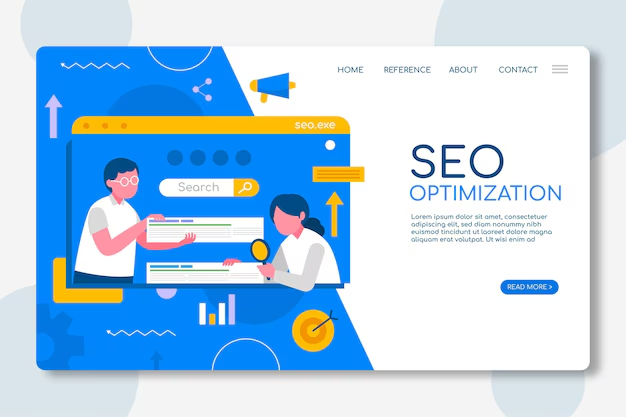Choosing the right platform for your business website is crucial for building a strong online presence. Two popular options are WordPress and Blogger. Both platforms have their own sets of advantages and drawbacks, making the decision between them depend on your business needs, technical skills, and future growth plans. In this article, we’ll explore the pros and cons of using WordPress and Blogger to help you make an informed decision.
What Is WordPress?
WordPress is a powerful content management system (CMS) that powers over 40% of websites on the internet. It comes in two versions: WordPress.com (a hosted solution) and WordPress.org (a self-hosted solution). WordPress.org is often preferred by businesses because it offers full control over the website and access to a wide range of plugins and themes.
What Is Blogger?
Blogger is a free blogging platform owned by Google. It is a hosted service, meaning Google manages the server and storage for your content. While Blogger is easy to set up and use, it comes with limited customization options, making it ideal for beginners but less appealing to businesses that need more flexibility and control.
Pros of Using WordPress for Your Business
- Customization and Flexibility: WordPress offers a wide range of themes and plugins, allowing you to create a unique website that aligns with your brand. You can customize every aspect of your website, from the layout to specific functionalities.
- SEO Capabilities: WordPress is known for its strong SEO capabilities. With plugins like All in One SEO and Rank Math, you can optimize your content, manage meta tags, create XML sitemaps, and improve your site's visibility on search engines.
- Full Control Over Content: As a self-hosted platform, WordPress.org gives you complete control over your website's content and data. You can back up your site, move to a different hosting provider, or even export your content if needed.
- Scalability: WordPress is scalable and can grow with your business. Whether you need a simple blog, an e-commerce store, or a complex membership site, WordPress can handle it with ease.
- Professional Appearance: WordPress offers a variety of professional themes that help create a polished and credible website for your business. The ability to integrate custom code means you can achieve almost any design you envision.
Cons of Using WordPress for Your Business
- Learning Curve: For beginners, WordPress can be challenging to learn, especially when it comes to understanding the dashboard, installing plugins, and managing themes. However, with practice, you can become proficient in managing your site.
- Maintenance and Updates: Running a WordPress site means you are responsible for maintaining the software, updating plugins, themes, and the WordPress core to ensure security and functionality.
- Costs: While WordPress itself is free, you will need to pay for hosting, a domain name, premium themes, and possibly some plugins. The costs can add up, especially if you want to use premium tools for advanced features.
Pros of Using Blogger for Your Business
- Ease of Use: Blogger is known for its simplicity and ease of use, making it an excellent choice for beginners. You can get a blog up and running in minutes without the need for technical skills.
- Free Hosting: Since Blogger is a hosted platform, you don't need to worry about hosting fees. Google provides the hosting and takes care of server management, allowing you to focus on creating content.
- Integration with Google Services: Being a Google product, Blogger integrates seamlessly with other Google services like Google Analytics, Google AdSense, and Google Search Console, making it easy to monitor your site's performance.
- Automatic Updates and Security: Google handles updates and security for Blogger, meaning you don’t have to worry about software updates or security patches.
Cons of Using Blogger for Your Business
- Limited Customization: Blogger offers fewer customization options compared to WordPress. You are restricted to the themes and widgets provided by the platform, which may not fully align with your brand's look and feel.
- Lack of Control: Since Google hosts your content, you don't have full control over your data. Google can shut down your blog at any time, which can be a risk for businesses that rely on their website as a primary marketing channel.
- Not Ideal for Business Growth: Blogger is designed for simple blogs and lacks the advanced features that businesses often need, such as e-commerce capabilities, custom forms, and membership sites. This makes it less suitable for businesses that plan to scale.
- SEO Limitations: While Blogger has basic SEO settings, it lacks the advanced plugins and customization options that WordPress offers. This can limit your ability to optimize your content and compete with more advanced websites in search engine rankings.
WordPress vs Blogger: Which One Should You Choose?
The decision between WordPress and Blogger ultimately depends on your business goals, technical skills, and long-term plans:
- Choose WordPress if: You want complete control over your website, need advanced customization options, and plan to grow your online presence over time. WordPress is ideal for businesses that want a professional appearance, advanced SEO features, and scalability.
- Choose Blogger if: You are a beginner looking for a simple, no-cost way to start blogging or create a basic website. Blogger is suitable for hobby bloggers or small projects that don’t require advanced customization or e-commerce features.
Conclusion: Making the Right Choice for Your Business
Both WordPress and Blogger have their strengths and weaknesses when it comes to building a business website. If you value flexibility, control, and advanced features, WordPress is the better option. However, if you prefer simplicity and are looking for a free, easy-to-use platform, Blogger may be the right choice for starting out. Ultimately, consider your business needs, growth potential, and the type of online presence you want to establish when making your decision.






